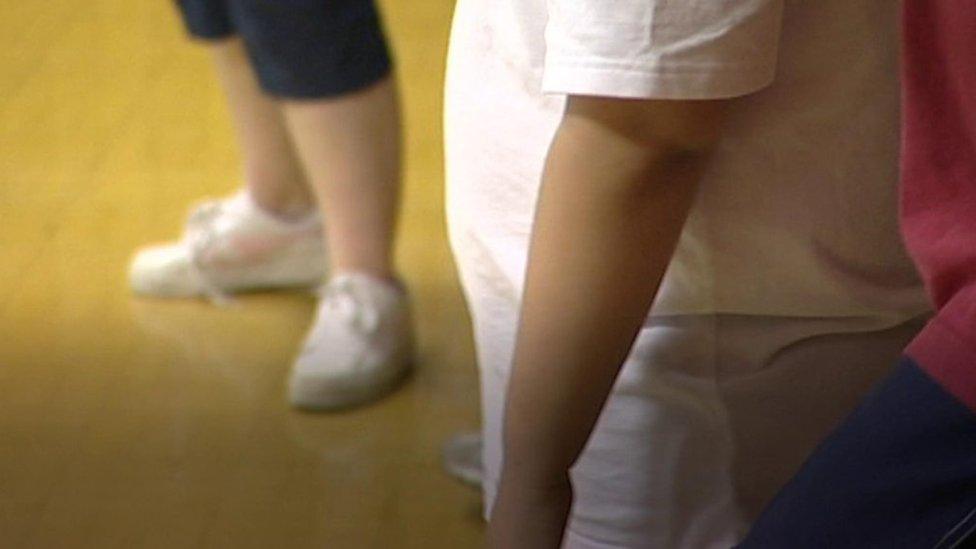Covid-19: Children in Northern Ireland 'eating less healthily'
- Published
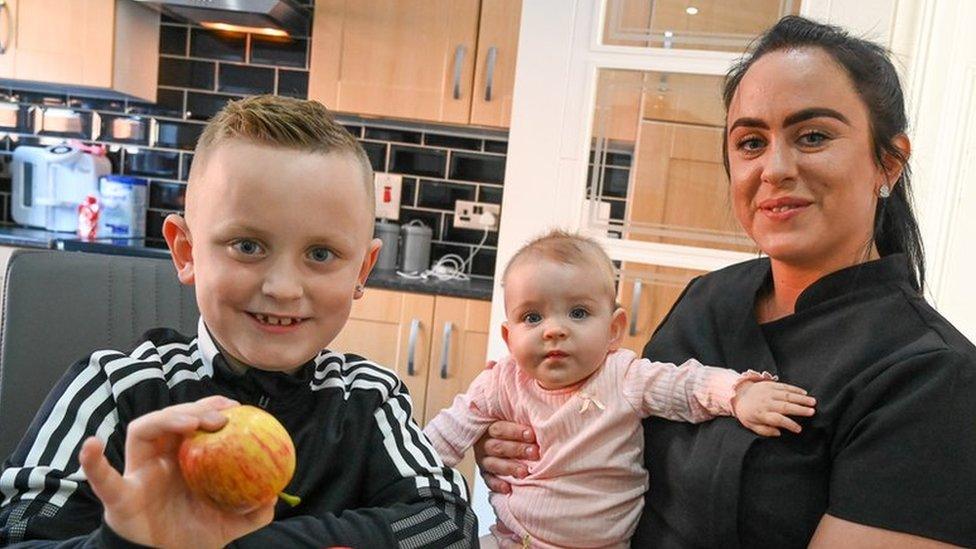
Lesleyanne McAreavey, pictured with Kade and Kali, said she struggled with the lack of routine at the beginning of the Covid-19 pandemic
Children in Northern Ireland are eating less healthily than before the Covid-19 pandemic, according to an all-Ireland public health body.
As restrictions continue to ease, Safefood, the Department of Health and the Public Health Agency, have launched the Start campaign, which aims to encourage healthier habits.
Its research found that parents have found it difficult to refuse treats.
One Belfast mother said her son, who is seven, "was never out of the fridge".
"He'd lost his football practice, after-school activities and everything else that he was used to," Lesleyanne McAreavey told BBC News NI.
"We found ourselves choosing easy foods that were not as healthy,"
Ms McAreavey is mother to her son Kade and baby Kali, who was born during lockdown.
She said boredom played a big part in her family's eating habits changing.
"I did notice we became a bit more lax during lockdown," she said.
"Habits changed, our routine changed. I was no longer preparing dinner for Kade coming home from school and instead we were snacking throughout the day."
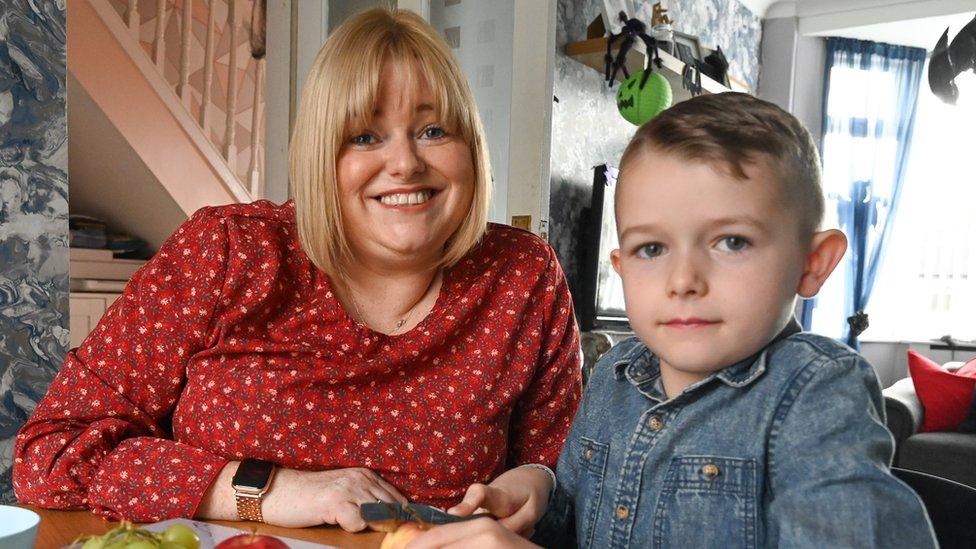
Ashley Rosson has been encouraging her son to eat more fruit
For Ashley Rosson, who is also from Belfast, treats started to creep onto her online shopping list as a means of rewarding her son.
"During the beginning of lockdown, we were both eating relatively well, maybe one small treat per a day like a fun-size chocolate bar or small bag of crisps," she said.
"But I was really trying to stick with healthier snacks for Luke like natural yoghurt and honey or veg and dips," she said.
"As the weather was so nice in the early stages of lockdown, Luke started to ask for more and more ice lollies and sweet treats as he was home a lot more and getting bored of the same daily routine.
"Once takeaways opened again, we slid into a habit of treating ourselves once during the week and one at the weekend, and with very little to occupy ourselves at night we settled into a routine of watching movies with a bowl of popcorn and jelly sweets."
'The least I could do was give him some sweets'
Last summer, Ms Rosson reviewed her shopping list and decided it was time to limit the treats.
"That day I just looked at Luke who was playing and eating an ice-cream lolly," she said.
"I knew if I didn't get a hold of our eating habits, I would start to put on weight and I knew it wasn't good for Luke.
"He was happy with healthy treats and snack. It was me bringing in the rubbish like crisps, chocolate and biscuits into the house because I felt bad that he was stuck at home and not able to play with his friends.
"I thought the least I could do was give him some sweets."
Now every week her family tries to incorporate a new piece of fruit in their diets.
Since tweaking their diet and exercising more, Ms Rosson said both she and Luke are feeling and sleeping better. She has even lost a bit of weight.
Lesleyanne is also trying to change her lockdown habits and says she is now leading a healthier lifestyle.
"You do feel better when you eat better and I would encourage everyone to make those changes."
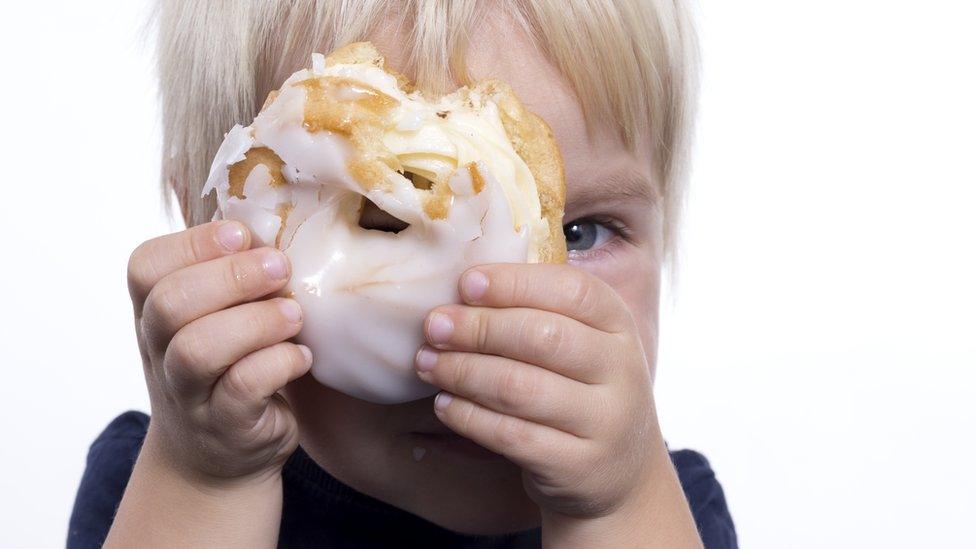
More than a quarter of children in NI are overweight or obese
Dr Aileen McGloin, a nutritionist for Safefood, told BBC News NI about a fifth of the calories that children eat come from "treat foods" which are generally higher in sugar, fat and salt, "so we should only eat them occasionally and in small amounts".
"When our kids fill up on treats, they don't have room for more nourishing foods," she said.
According to Department of Health statistics, 27% of children in Northern Ireland are overweight or obese.
Dr McGloin said many children did not need treats and instead "just want a bit more of your time and attention".
"Alternative treats could be a trip to your favourite place - the park, the woods, a playground, a beach or library," said Dr McGloin.
"Whatever is near where you live and brings some enjoyment to you all. You could play a game with them, indoors or outside.
"And for those little ones at home, even a hug and kiss can sometimes be the thing to boost everyone's spirits."
- Published4 June 2021
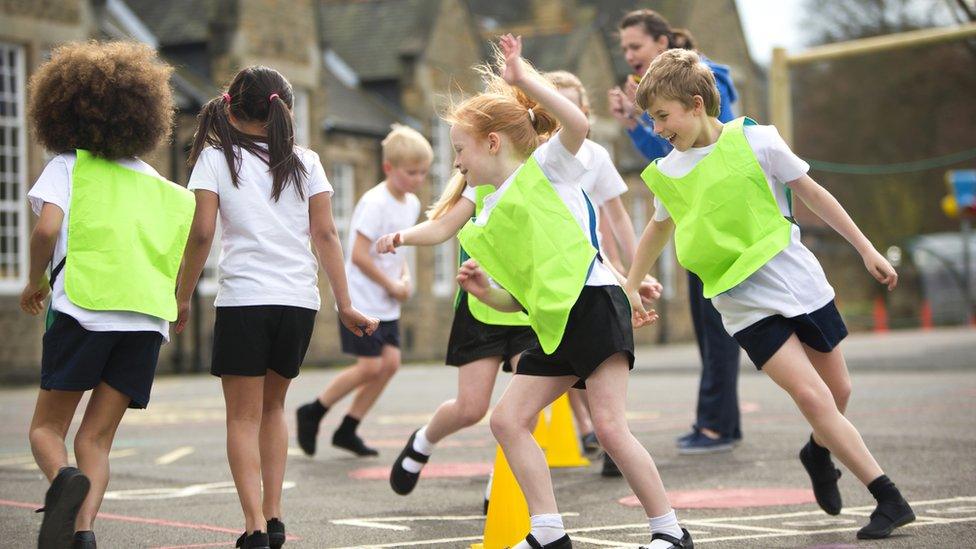
- Published11 June 2019
